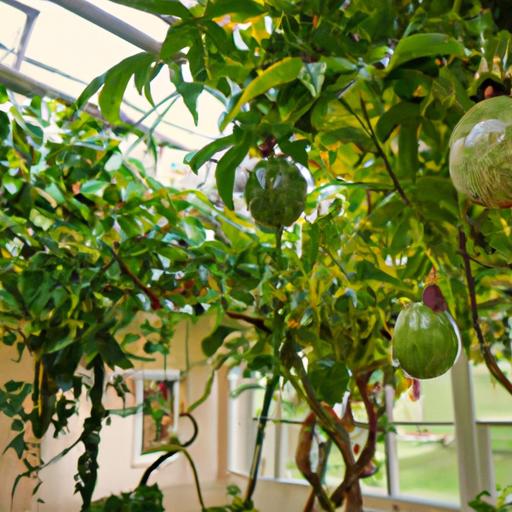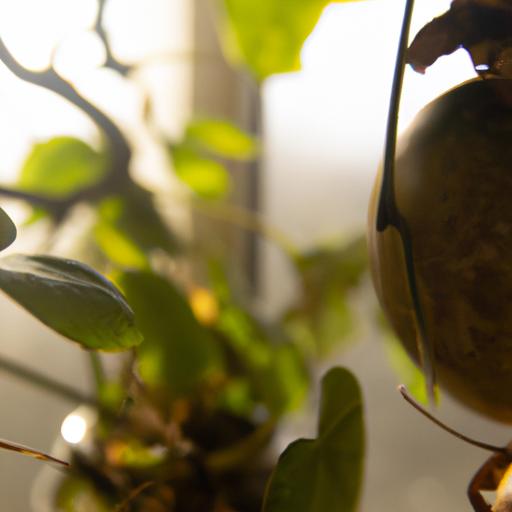Discover the secrets of successful indoor gardening! Learn how to grow passion fruit indoors and enjoy tropical flavors year-round. can you grow passion fruit indoors? Find out now!
Are you a fruit enthusiast who dreams of growing your own passion fruit indoors? Well, fear not! In this article, we will explore the world of indoor gardening and show you how to grow vibrant and delicious passion fruit right in the comfort of your home.
Why Choose Indoor Gardening for Passion Fruit
Indoor gardening has become incredibly popular in recent years, and for good reason. Growing passion fruit indoors offers a host of benefits that make it an attractive option for gardening enthusiasts.
One of the greatest advantages of indoor gardening is the convenience and accessibility it provides. Regardless of whether you live in a small apartment or a region with a colder climate, indoor gardening allows you to cultivate your favorite fruits year-round, free from the constraints of external factors.
Another benefit is the level of control you have over the growing environment. You can adjust variables such as sunlight, temperature, humidity, and space to create the perfect conditions for your passion fruit plants. This control ensures optimal growth and increases your chances of a fruitful harvest.
Key Factors for Growing Passion Fruit Indoors
Before you jump into the world of indoor passion fruit gardening, there are several crucial factors to consider. These factors will significantly impact the success of your indoor garden and the health of your passion fruit plants.
1. Sunlight
Passion fruit plants thrive in bright, direct sunlight. Make sure to choose an indoor spot that receives at least 6-8 hours of sunlight each day. Placing your plants near a south-facing window or using grow lights to supplement natural light can be beneficial.
2. Temperature and Humidity
Maintaining a warm temperature between 70-85°F (21-29°C) is ideal for passion fruit plants. Avoid extreme fluctuations that can stress the plants. Additionally, moderate humidity levels are necessary. You can mist the leaves or use a humidifier if required.
3. Space
Passion fruit vines are vigorous climbers and require ample space for growth. Select a large container or hanging basket that provides enough room for the roots to spread and the vines to climb. Consider using trellises or support structures for vertical growth.
4. Soil and Fertilizer
Ensure that you use well-draining soil enriched with organic matter to promote proper root development and nutrient absorption. Passion fruit plants benefit from regular fertilization, especially during the growing season. Choose a balanced organic fertilizer and follow the recommended dosage.
5. Watering
Consistent moisture is essential for passion fruit plants, but remember to avoid overwatering, as it can lead to root rot. Water the plants when the top inch of soil feels dry, ensuring proper drainage to prevent waterlogging.
Frequently Asked Questions about Growing Passion Fruit Indoors
-
Can passion fruit be grown in pots?
Yes, passion fruit can be successfully grown in pots, provided they have sufficient space for root growth and climbing support. -
How long does it take for passion fruit to grow indoors?
On average, passion fruit plants start producing fruit within 1 to 2 years of planting, but the timing can vary depending on factors such as care, variety, and growing conditions. -
What type of soil is best for growing passion fruit indoors?
Well-draining soil mixed with organic matter, such as compost or peat moss, is ideal for growing passion fruit indoors. It promotes healthy root development and nutrient absorption. -
Can passion fruit be grown from seeds indoors?
Yes, passion fruit seeds can be germinated and grown indoors. However, it’s important to note that passion fruit plants grown from seeds may take longer to bear fruit compared to those grown from cuttings or established plants. -
How often should passion fruit plants be watered indoors?
Passion fruit plants should be watered when the top inch of soil feels dry. It’s important to maintain consistent moisture, but remember to avoid overwatering to prevent root rot.
In Conclusion
Growing passion fruit indoors is not only possible but also highly rewarding. By paying attention to key factors such as sunlight, temperature, humidity, space, soil, and watering, you can cultivate healthy passion fruit plants right in the comfort of your own home.
At Rowe Organic, we are passionate about organic gardening and providing expert tips and inspiration for all your gardening endeavors. Whether you’re a seasoned gardener or just starting your green journey, our website is your go-to resource for all things organic gardening. Cultivate, nurture, and grow naturally with Rowe Organic.
So why wait? Start your indoor passion fruit garden today and experience the joy of harvesting your own tropical fruits, regardless of the season. For more information on gardening and other plant-related topics, visit Rowe Organic‘s gardening section or explore our collection of plants suitable for indoor gardens based on different garden types here.
Happy gardening!


